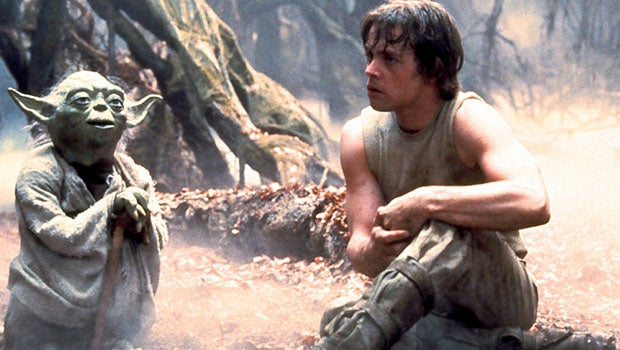Credit: www.starwars.com
"Do. Or do not. There is no try."
You may be familiar with this sage advice from Yoda to a young Luke Skywalker even if you are not a Star Wars fan. In one of his many quotes on life lessons, Yoda challenges Skywalker to learn and grow, and provides the vision to build his confidence and, eventually, independence.
Many movies have been built on the foundation of relationships between memorable mentors and mentees - think Dumbledore and Harry Potter; Mr Miyagi and the Karate Kid. In real life, Mark Zuckerberg had Steve Jobs and Oprah Winfrey had Maya Angelou.
But why is having a mentor important? How does it help us personally and professionally?
Mr Goh Leong Huat, Deputy Group Chief Human Resource Officer (CHRO), SingHealth and CHRO, SGH believes that anyone can be a mentor and can benefit from mentoring. The key is to keep an open mind to learning and problem solving.

We speak to Leong Huat as he shares his experiences both as a mentor and a mentee throughout his career and his hopes for making mentoring a part of the SingHealth culture.
What do you appreciate most about your mentors?
I spent most of my career - 25 years in the Navy where mentoring took place both formally and informally. Thinking back, my best mentors were those who, through their leadership, imparted value systems and shaped my way of thinking.
One important trait that I really appreciated was their ability to suspend judgment, often times a very difficult thing to achieve. This ability to maintain objectivity or neutrality is important because on many occasions, especially as a young officer, I did not have the experience to see the big picture and my mentors' guidance enabled me to gain insights into their perspectives, their considerations and thought processes when making decisions.
What's the most valuable benefit to having a mentor?
I would say it is to gain different (sometimes totally fresh!) perspectives to a scenario or situation. The way we approach an issue is shaped by our value systems and mental models, and we may be blindsided by factors that can have an impact on the decision we make. Just like the story of the blind men and the elephant, we create our own version of reality based on our limited experience and perspectives. When a mentor offers a different viewpoint, sometimes we go, "Oh yes! Why didn't I think of that?" When this new avenue of thinking is then applied to the issue at hand, the result or decision taken can be very different.

Credit: Pinterest
Why should one strive to be a mentor after gaining some experience in his or her career?
The opportunity to learn from younger or more junior colleagues. When I started my career about 30 years ago, the expectations were for our managers to give answers to the problems we encounter, give directions, make decisions.
Today, things are very different, more complex and there is often no single definitive answer to questions. Our younger colleagues want to be part of the decision making process; they want to be more involved in shaping the future. This is what keeps them engaged and motivated in an organisation.
What is your vision for fostering the culture of mentoring in SingHealth?
Over time, the vision is to embed mentoring as an integral part of our organisational DNA. Even as we strengthen the culture through the formal mentoring framework, the goal is to eventually create an environment which promotes learning and growth, sharing of knowledge and wisdom and role-modelling amongst all levels of staff in a self-reinforcing manner. This means that staff of different levels of seniority will naturally and consciously take on the role of a mentor so that we are able to build trust and strengthen relationships, and enable open and transparent communication across SingHealth.
Article adapted from Lighter Notes (www.sgh.com.sg/lighternotes)














 Get it on Google Play
Get it on Google Play